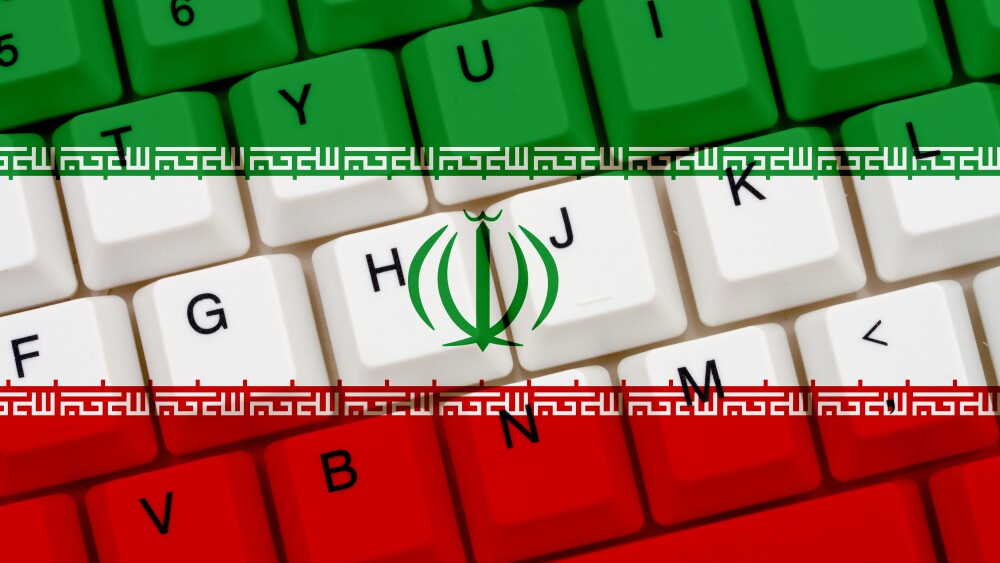Iran has disconnected the internet nationwide. According to Netblocks, which tracks internet access worldwide, connectivity in Iran has dropped to 3 percent. It also jams satellite signals. This will allow the Islamic Republic to control the information flow within Iran and coming out of Iran. This tactic will protect the regime at the cost of Iranian lives.
Throughout the war, Israel has warned Iranians via the internet to evacuate target zones to minimize casualties.
Much of Iran’s security assets are placed in residential areas. Like Hamas, the Islamic Republic uses its own people as human shields. Throughout the war, Israel has warned Iranians via the internet to evacuate target zones to minimize casualties. Persian satellite networks, broadcast out of the United States and the United Kingdom, helped spread these warnings. These alerts help people but also make it more convenient for Israel to take out military targets. The Iranian government has asked people to ignore calls to evacuate Tehran. If the Iranian regime alone can control messaging and footage, it can depict any casualties as caused by Israel, potentially to change the international diplomatic mood and erode Trump administration support for the Jewish state.
Connectivity also matters for psychological reasons. Iranians in Iran and among the diaspora have used the internet to check on each other and keep a degree of calm. An information blackout will add to their wartime anxieties.
In addition to forcing the average Iranian to be a human shield for military targets, the monopoly over the information flow within Iran also prevents Iranians from coordinating an uprising. The phrase “regime change,” a taboo until recently, is becoming an imperative. Iranians are aware that support for regime change is at its highest abroad, while the Islamic Republic is at its weakest; this popular knowledge scares the Islamic Republic. In 2009 and 2019, the regime successfully used internet blackouts as a tactic. During the 2017 and 2022 protests, though it did not impose a nationwide blackout, it reduced internet access and speed successfully to prevent coordination among the people. It is resorting to the same tactic again, fearing an uprising.
Most importantly, the monopoly over information will prevent a sudden drop in morale among the regime’s security forces. Supreme Leader Ali Khamenei legitimizes himself via an image of strength. But this war has been a humiliation even in the eyes of the most biased observer. Israeli fighters are operating with impunity, while Iran’s success rate in hitting Israel is dropping.
A regime that unveiled a countdown clock for the destruction of Israel to boost the morale of its security forces is now under an existential threat from Israel.
Iran has shot 170 missiles at Israel each round. Israel has since destroyed Iran’s launchers, and the average launch rate has dropped below 20 in days. Accordingly, the impact rate has dropped, too. A regime that unveiled a countdown clock for the destruction of Israel to boost the morale of its security forces is now under an existential threat from Israel, a choice that political scientists call “a very bad look.” Worse than low morale, continued humiliations will bring a risk of rebellion from within the regime’s ranks.
There are also two reasons the Iranian regime is so desperate to prevent information from escaping Iran.
First, it will stop the international exposure to military weakness. Deterrence relies on capabilities and resolve, and Iran’s capabilities are exaggerated by most analysts. Foreign public opinion is fearful of a war with Iran. But the more the ayatollah is exposed for not wearing clothes, the more concerns in the United States and Europe about a conflict will ease.
Also humiliating are the messages of support for the war by the average Iranian. The extent of such support is significant; while it should not be exaggerated, neither should it be dismissed. These sentiments are significant to the regime; the government is detaining people for social media posts supporting Israel in the middle of an existential war.
This war further exacerbates the cleavage between the people and the state, exposing how their interests are mutually exclusive. After the war, the Islamic Republic will have to reckon with the fact that the foreign belligerents showed more concern for Iranian lives than did the Iranian regime that was too willing to use them as a decoy.






